








Capo Canyon
Verified Center
This provider's information has been quality-checked by Recovery.com's Research Team for accuracy and completeness, including center verification through appropriate third-party organizations.
Treatment Focus
This center treats substance use disorders and co-occurring mental health conditions. Your treatment plan addresses each condition at once with personalized, compassionate care for comprehensive healing.
Primary Level of Care
Offering intensive care with 24/7 monitoring, residential treatment is typically 30 days and can cover multiple levels of care. Length can range from 14 to 90 days typically.
Treatment Focus
This center treats substance use disorders and co-occurring mental health conditions. Your treatment plan addresses each condition at once with personalized, compassionate care for comprehensive healing.
Primary Level of Care
Offering intensive care with 24/7 monitoring, residential treatment is typically 30 days and can cover multiple levels of care. Length can range from 14 to 90 days typically.
Provider's Policy
Capo Canyon does not accept Medicaid, Medicare, or any government funded insurance policies. Capo Canyon works with most PPO insurance plans that cover out-of-network benefits. Many times insurance can help cover up to 100% of the cost of treatment at Capo Canyon's program. Their admissions coordinators can help you navigate your options for treatment with a free insurance benefits verification, at no cost or obligation to you.
Capo Canyon
Capo Canyon
About Capo Canyon
Capo Canyon redefines private treatment, creating a healing experience designed with executives and professionals in mind. This boutique recovery center treats substance use and co-occurring mental health conditions through an integrative approach. Offering detox and residential care, Capo Canyon provides a retreat-like environment, serving no more than 5 clients at a time—each in a private room and supported by 24/7 clinical care—so attention stays focused and progress remains sustainable.
Cultivate Lasting Change with Whole-Person Care
Capo Canyon’s treatment approach emphasizes balance, blending structured therapies with hands-on practices that support emotional, physical, and spiritual renewal. Sessions help clients untangle unhelpful thought patterns, steady difficult emotions, and process past harm safely while shifting perspectives from limitation to wellness and possibility. Yoga, meditation, art, and nutrition cultivate calm and connection, encouraging mindfulness, body awareness, and lasting habits that sustain recovery beyond treatment.
Enjoy Upscale Comfort
Every detail at Capo Canyon supports comfort and restoration. Spacious private rooms feature plush bedding, natural light, and personal workspaces that invite focus and rest. Chef-prepared meals use fresh, seasonal ingredients with flexible dietary options. Clients can enjoy outdoor lounges, walking paths, and gardens that encourage reflection, as well as a fitness center and therapeutic massage. Concierge care coordination ensures a seamless stay centered on relaxation and renewal.
Sustain Progress with Purposeful Recovery Planning
Following residential treatment, clients receive continued support to sustain progress and confidence. Capo Canyon’s team designs aftercare plans that may include step-down outpatient therapy, recovery coaching, 12-step participation, and sober-living options. With relapse-prevention strategies and practical life-skills support, clients integrate coping tools into everyday routines, maintain momentum in recovery, and continue building lasting sobriety, emotional health, and professional well-being.

Highlights from the Center
Highlights
These highlights are provided by and paid for by the center.
Perfect for Professionals
Private Rooms Only
Tech Friendly
Executive Treatment
Center Overview
Treatment Focus
This center treats substance use disorders and co-occurring mental health conditions. Your treatment plan addresses each condition at once with personalized, compassionate care for comprehensive healing.
Joint Commission Accredited
The Joint Commission accreditation is a voluntary, objective process that evaluates and accredits healthcare organizations (like treatment centers) based on performance standards designed to improve quality and safety for patients. To be accredited means the treatment center has been found to meet the Commission's standards for quality and safety in patient care.
Recently helped 9 people via Recovery.com

Capo Canyon
Recently helped 9 people via Recovery.com
Insurance Accepted
Cash Pay Rates
Estimated Cash Pay Rate
Center pricing can vary based on program and length of stay. Contact the center for more information. Recovery.com strives for price transparency so you can make an informed decision.

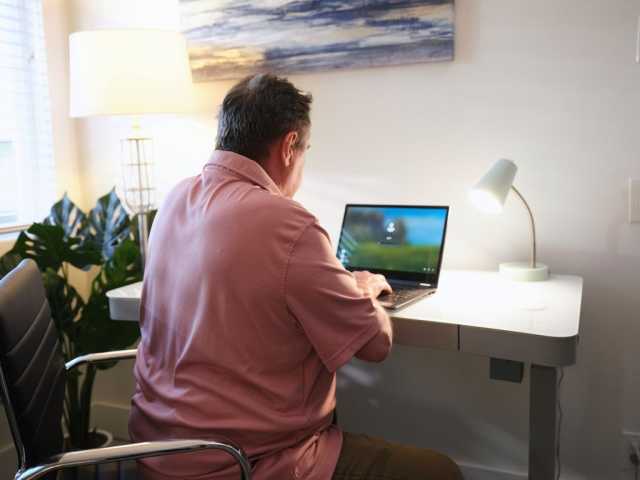
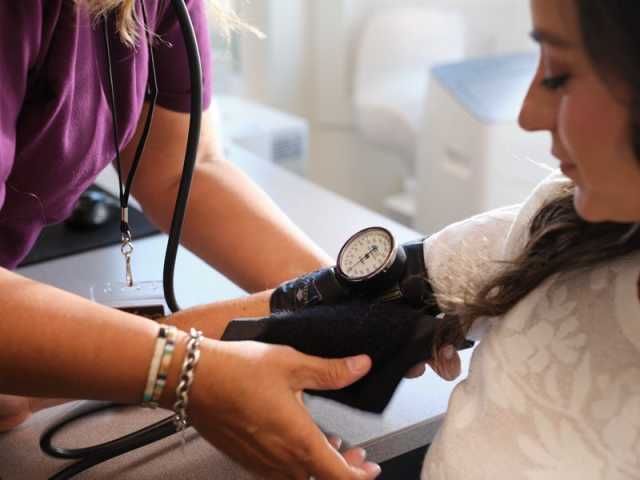

Recovery.com Verified Listing
Recovery.com verified that the name, location, contact information and license to operate for this treatment provider are valid and up-to-date.

Joint Commission Accredited

Licensed by California DHCS

NAATP Member
Recovery.com is an independent, third-party mental health resource. Verification does not imply endorsement and does not guarantee the quality of treatment services.
Meet Your Care Team

Shonte Perluss
Chief Administrative Officer
CTE

Sean Treacy
Chief Executive Officer/Director of Admissions

Marsalee Malatesta
Clinical Director
LCSW

Maryam Aziz
Clinical Supervisor
LCSW

Tiffany Congelliere
Director of Marketing & Strategic Partnerships
MBA

Dr. Randall Turner
Medical Director / Psychiatrist
D.O.

Lynda Totah
Mental Health Nurse Practitioner
NP

Daniel Jimmerson
Family Therapist
CADC, APCC

Brynn Rydquist
Therapist
LPCC

Jeremiah Wright
Therapist
APCC

Alysha Orecchia
Recreational Therapist
MA, ATR-BC

Elizabeth Rodriguez
Behavioral Health Technician
SUDRC

Lisa Yee
Practicum Intern

Amanda Irrgang
Dietitian
RD

Bernie Wolfe
Personal Trainer

Aster Robarge
Group Facilitator
SUDRC

Alea Southard
Group Facilitator
RADT-1

Courtney Parkyn
Yoga & Meditation Instructor
E-RYT 500

MaryAnn Vaughn
EFT / Group Facilitator

Sandy Szemenyei
Breathworks Group Facilitator
CADC-II
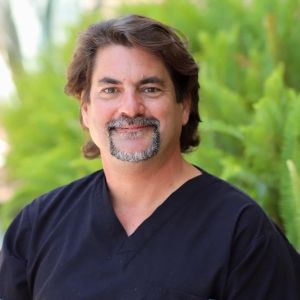
Andrew Zlatich
Massage Therapist
LMT, NCTMB

Celeste Seiler
Massage Therapist
CMT

Sarah Boon
Yamuna Group Facilitator
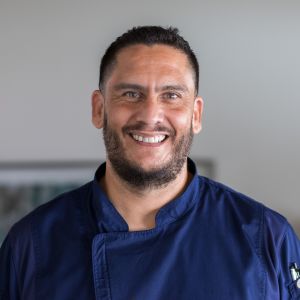
Eric Moreno
Head Private Chef / Horticulturist

Jeanne Gettys
Medical Concierge
SUDRC

Kelene Thome
Detox Technician

Kelley Montelongo
Nurse
LVN

Kay Archibald
Nurse
LVN

Zaney Estrada
Nurse
LVN

Brianna Hawkins
Nurse
LVN

Michelle Chavez
Nurse
LVN

Hollie Hopkins
Nurse
LVN
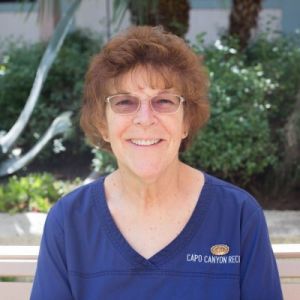
Cheryl Parker
Nurse

Dominick Narigi
Operations Manager

Max
Director of Emotional Support & Cuddles
Your Care Options
Specializations
Alcohol
Using alcohol as a coping mechanism, or drinking excessively throughout the week, signals an alcohol use disorder.
Detox
Detox fully and safely removes toxic substances from the body, allowing the next steps in treatment to begin with a clean slate.
Benzodiazepines
Benzodiazepines are prescribed to treat anxiety and sleep issues. They are highly habit forming, and their abuse can cause mood changes and poor judgement.
Executives
Executive treatment programs typically directly support the needs of people who manage businesses and may provide flexible schedules and office space to allow work during treatment.
Holistic
A non-medicinal, wellness-focused approach that aims to align the mind, body, and spirit for deep and lasting healing.
Individual Treatment
Individual care meets the needs of each patient, using personalized treatment to provide them the most relevant care and greatest chance of success.
Professionals
Busy, high-ranking professionals get the personalized treatment they need with greater accommodations for work, privacy, and outside communication.
Who We Treat
Older Adults
Addiction and mental health treatment caters to adults 55+ and the age-specific challenges that can come with recovery, wellness, and overall happiness.
Executives
Executive treatment programs typically directly support the needs of people who manage businesses and may provide flexible schedules and office space to allow work during treatment.
LGBTQ+
Addiction and mental illnesses in the LGBTQ+ community must be treated with an affirming, safe, and relevant approach, which many centers provide.
Men and Women
Men and women attend treatment for addiction in a co-ed setting, going to therapy groups together to share experiences, struggles, and successes.
Midlife Adults
For adults ages 40+, treatment shifts to focus on the unique challenges, blocks, and risk factors of their age group, and unites peers in a similar community.
Pregnant Women
Addiction and mental health treatment meets the clinical and psychological needs of pregnant women, ensuring they receive optimal care in all areas.
Professionals
Busy, high-ranking professionals get the personalized treatment they need with greater accommodations for work, privacy, and outside communication.
Treatment Services
Detox
Detox fully and safely removes toxic substances from the body, allowing the next steps in treatment to begin with a clean slate.
Detox (on-site with residential)
This is often the first step of addiction treatment. For many people, it's dangerous to detox without proper medical support.
Private Therapy
This is an individual therapy that's often available at private therapy clinics. Clients may be able to choose a therapist who best fits their unique needs.
Residential
In a residential rehab program, patients live onsite, with access to daily treatment and 24-hour care. An average stay is 30-90 days.
Approaches
Evidence-Based
A combination of scientifically rooted therapies and treatments make up evidence-based care, defined by their measured and proven results.
Holistic
A non-medicinal, wellness-focused approach that aims to align the mind, body, and spirit for deep and lasting healing.
Individual Treatment
Individual care meets the needs of each patient, using personalized treatment to provide them the most relevant care and greatest chance of success.
Strengths-Based
Providers using a strengths-based philosophy focus on the positive traits of their patients, creating a positive feedback loop that grows confidence.
Therapies
1-on-1 Counseling
Patient and therapist meet 1-on-1 to work through difficult emotions and behavioral challenges in a personal, private setting.
Meditation & Mindfulness
A practiced state of mind that brings patients to the present. It allows them to become fully aware of themselves, their feelings, and the present moment.
Trauma-Specific Therapy
This form of talk therapy addresses any childhood trauma at the root of a patient's current diagnosis.
Mindfulness Therapy
This ancient practice can be mental, emotional, and even spiritual. In meditation, you focus your attention on the present moment without judgement.
Adventure Therapy
This experiential approach uses the physical and emotional challenges of outdoor activities as tools for personal growth.
Attachment-Based Family Therapy
ABFT is a trauma-focused therapy that teaches you to form healthy relationships by rebuilding trust and healing attachment issues formed in childhood.
Animal Therapy
Animals can inspire trust and self-worth. In this experiential therapy, guided interactions are used to improve social skills and emotion regulation.
Art Therapy
Visual art invites patients to examine the emotions within their work, focusing on the process of creativity and its gentle therapeutic power.
Conditions We Treat
Grief and Loss
Grief is a natural reaction to loss, but severe grief can interfere with your ability to function. You can get treatment for this condition.
Personality Disorders
Personality disorders destabilize the way a person thinks, feels, and behaves. If untreated, they can undermine relationships and lead to severe distress.
Anger
Although anger itself isn't a disorder, it can get out of hand. If this feeling interferes with your relationships and daily functioning, treatment can help.
Anxiety
Anxiety is a common mental health condition that can include excessive worry, panic attacks, physical tension, and increased blood pressure.
Bipolar
This mental health condition is characterized by extreme mood swings between depression, mania, and remission.
Depression
Symptoms of depression may include fatigue, a sense of numbness, and loss of interest in activities. This condition can range from mild to severe.
Gaming
Compulsive gaming is most often a problem for children and teens. The disorder can affect physical health, sleep, and the ability to focus at school.
Self-Harm
The act of intentionally harming oneself, also called self-injury, is associated with mental health issues like depression.
Substances We Treat
Alcohol
Using alcohol as a coping mechanism, or drinking excessively throughout the week, signals an alcohol use disorder.
Benzodiazepines
Benzodiazepines are prescribed to treat anxiety and sleep issues. They are highly habit forming, and their abuse can cause mood changes and poor judgement.
Chronic Relapse
Consistent relapse occurs repeatedly, after partial recovery from addiction. This condition requires long-term treatment.
Co-Occurring Disorders
A person with multiple mental health diagnoses, such as addiction and depression, has co-occurring disorders also called dual diagnosis.
Cocaine
Cocaine is a stimulant with euphoric effects. Agitation, muscle ticks, psychosis, and heart issues are common symptoms of cocaine abuse.
Drug Addiction
Drug addiction is the excessive and repetitive use of substances, despite harmful consequences to a person's life, health, and relationships.
Ecstasy
Ecstasy is a stimulant that causes intense euphoria and heightened awareness. Abuse of this drug can trigger depression, insomnia, and memory problems.
Heroin
Heroin is a highly addictive and illegal opioid. It can cause insomnia, collapsed veins, heart issues, and additional mental health issues.
Psychedelics
Hallucinogenic drugs—like LSD—cause euphoria and increased sensory experiences. When abused, they can lead to depression and psychosis.
Languages
Aftercare
Care Designed for Your Needs
Personal Amenities
Amenities
Special Considerations
Executive Program
Addiction and mental health treatment for executives typically involves high discretion, greater technology access, and more private, 1-on-1 care.
Flexible technology policies
Centers with flexible technology policies allow professionals to stay in touch with work and give patients a greater sense of connection and normalcy.
Activities
Yoga
Yoga is both a physical and spiritual practice. It includes a flow of movement, breathing techniques, and meditation.
Off-Site Activities
Yoga
Yoga is both a physical and spiritual practice. It includes a flow of movement, breathing techniques, and meditation.
Off-Site Amenities
Recently helped 9 people via Recovery.com
Learn More About the Center
Treatment Designed For Those Who Lead
Discover how specialized rehab helps high-performing leaders recover without stepping away from responsibilities.
Executive Burnout and Addiction
Explore the hidden toll of leadership stress and how to reclaim balance and purpose.
Benefits of Family Involvement in Recovery
Learn how involving loved ones can strengthen recovery and build lasting connection.
Talking to Employers about Rehab
Find out how to approach an employer confidently about taking time for recovery.
What people are saying
Treatment
5.0
Accommodations
5.0
Food & Nutrition
4.5
Value
5.0
Pros
- Beautiful Location (2)
- Luxurious Accommodations (2)
- Excellent & Effective Treatment Programming (2)
- Personalized (2)
Anonymous
Treatment in 2023 • (30 days) • Reviewed 09/13/23
Former Client
Anonymous
Treatment in 2023 • (30 days) • Reviewed 09/12/23
Former Client
•Southern California





